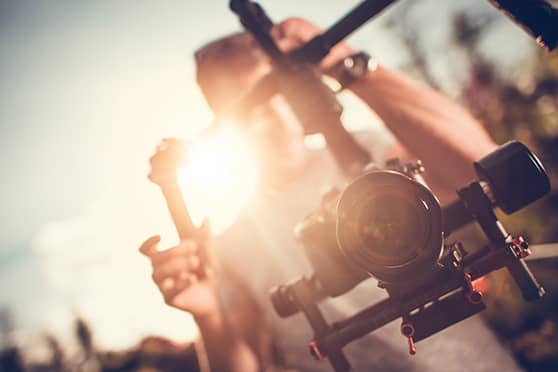Summary
St. Xaviers College and RKM Residential College Narendrapur offer Videography courses
Videography is all about capturing moments and may involve some video editing and post-production work
Do your friends rely on you when it comes to capturing precious moments with a camera? You can consider enrolling in a Videography course to sharpen your skills and know more about video editing and post-production. Such courses can be the gateway to a rewarding career in broadcasting and the ever-burgeoning freelance sector.
What is Videography
Videography is the process of capturing videos or moving images using electronic media. It also involves the art and process of shooting video in a way that elicits a desired effect on the viewer. A videographer may be the person shooting the video or the person in charge of video production. They can also be responsible for choosing the appropriate location, understanding the essence of the video, spotting social media trends.
Difference between Videography and Cinematography
Videography is all about capturing moments and may involve a certain amount of video editing and post-production work. Videographers take up hands-on video projects that are typically smaller in scope.
However, Cinematography encompasses a larger spectrum that includes feature-length and short movies, music videos and commercials. It is characterised by a definite artistic direction on part of the cinematographer or a whole team of creative directors.
Equipment used by videographers
You’ll need a video camera or DSLR to get started in this field. More than that, you need to be familiar with the typical equipment used by videographers. Here is a list of the gear used in Videography:
-
Multiple lenses: As Videography deals with certain stylistic aspects, different lenses will help you show your subject in different ways and spark interest among viewers.
-
Lighting equipment: Proper lighting is necessary for a high level of visual quality. For instance, you need to bring your lighting equipment to capture a wedding event where normal lighting may not be enough to capture the moments.
-
Stabiliser: Irrespective of whether you’re using a tripod or mount, you need a stabiliser to reduce jarring camera movement. It helps make your shots consistently steady.
-
Backups: Any video event consists of a massive amount of footage. To prevent running out of space on the camera, you need to bring backup memory or SD cards at events.
-
Sound accessories: On-camera microphones are an essential tool for videographers at events.
Where to study Videography
St. Xavier’s College, Kolkata
Course: BSc in Mass Communication & Videography.
-
Eligibility: You need to clear the Class XII board exams with at least 50% aggregate.
-
Admission: Merit-based.
-
Check more details.
ilead, Kolkata
Course: BSc in Film and Television.
-
Eligibility: You need to clear the Class XII board exams with at least 50% aggregate with English as a compulsory subject to become eligible for the Common Entrance Test (CET) of Maulana Abul Kalam Azad University of Technology (MAKAUT).
-
Admission: You have to clear the CET organised by MAKAUT and should have creative filmmaking aptitude.
-
Check more details.
Ramakrishna Mission Residential College, Narendrapur
Course: Certificate Course in Videography and Editing.
-
Eligibility: You need to clear the Class XII board exams with at least 50% aggregate.
-
Admission: Merit-based.
-
Check more details.
Asian Academy of Film and Television, Noida
Course: Certificate Course in Video Editing and Sound Recording.
-
Eligibility: You need to clear the Class XII board exams with at least 50% aggregate.
-
Admission: Merit-based.
-
Check more details.
Job prospects with a Videography degree
-
Freelance videographer: They create their own brands and choose projects accordingly. They can be wedding videographers, documentary creators and brand campaign shooters for corporations.
-
News channel cameraman: News channels recruit these videographers for in-studio and outdoor assignments. They are also required to make short news or feature documentaries.
-
Social media videographer: They create new video content like reels, shorts and YouTube vlogs in association with brands or social media influencers.
-
Documentary filmmaking: They make short films with basic video tools. It’s essential to create your own portfolio before entering this industry.
-
Video editor: Shooting a video is not enough! You also need to be able to edit it to perfection. A course in videography will equip you to use basic tools to edit and curate the perfect videos for your work.
-
YouTube content creator: They create video content for YouTube to showcase talents. All kinds of content creators need videographers for this process.
-
Cinematographer: Videographers can opt to work in the field of Cinematography. They begin work as an apprentice and then get promoted to assistant cinematographer. Finally, they work as lead cinematographers in the movie industry.
Last updated on 23 Feb 2022

